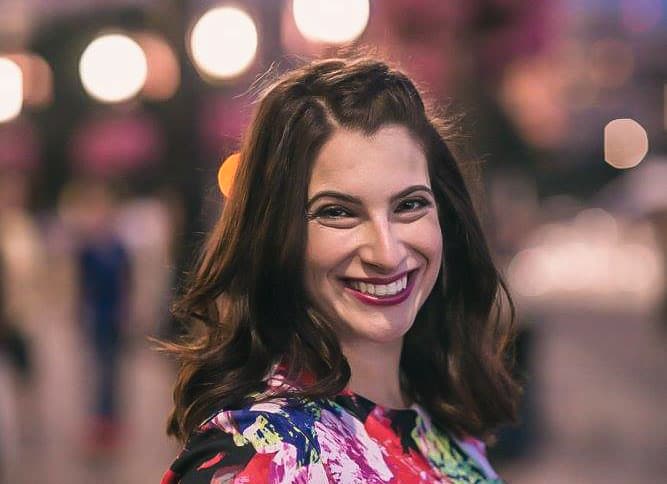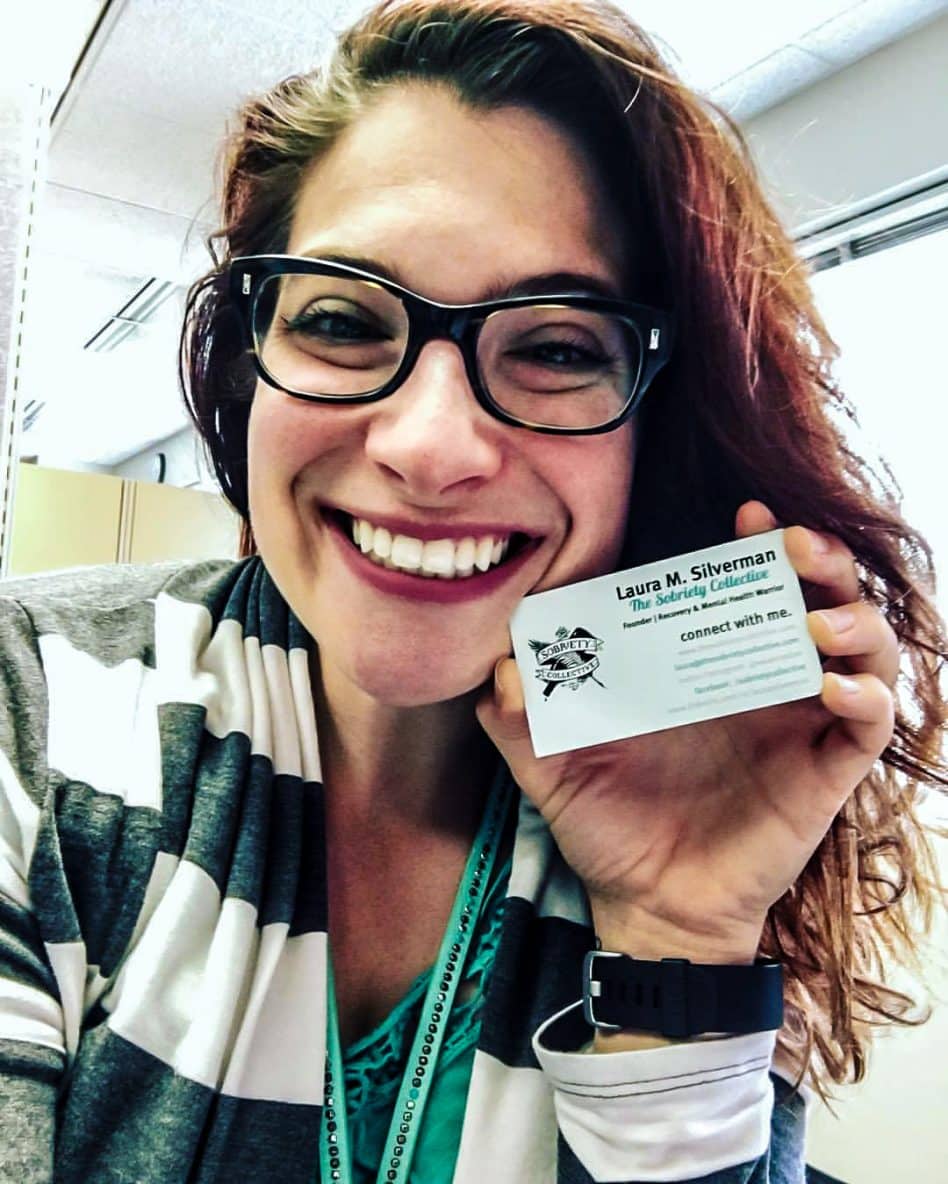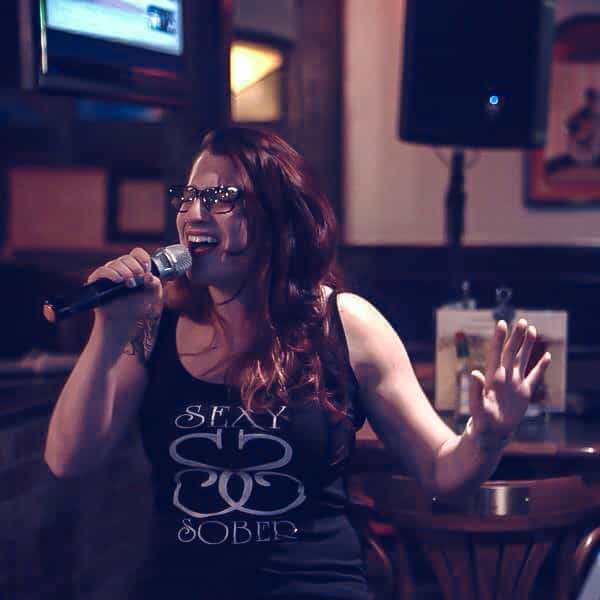Meet Laura
When Laura Silverman woke up for the second time in a hospital bed following a night of drinking, she knew that her life needed to change. For years, Laura’salcohol addictionhelped mask the pain of her mental illness, but ultimately, alcohol only served to make the problem worse.
After her harrowing hospitalization, this young woman said yes to life. Laura sought treatment, and she found a life more full and beautiful than she ever imagined.

Article at a Glance:
- Laura Silverman experienced alcohol addiction to mask the pain of mental illness.
- Laura sought treatment for her addiction and created The Sobriety Collective to celebrate recovery through creativity.
- Learn more about Laura and her recovery journey in this Q&A.
Carried Away
Growing up, Laura’s parents had instilled in her the values of right and wrong, and what separated the good decisions from the bad. But her priorities shifted as she grew up — as they typically do during adolescence when the nuances of teenage brain development blend with raging hormones, producing John Hughes-ian rebellious streaks.
“My first real taste of alcohol was at age 17. I instantly loved it.”
Treatment Can Be Life Changing. Reach out today.
Whether you are struggling with addiction, mental health or both, our expert team is here to guide you every step of the way. Don’t wait— reach out today to take the first step toward taking control of your life.
In a lot of ways, drinking alcohol was Laura’s way of staging her own mini-rebellion against her family’s expectations for her.
It was around this time that she began to experience mental illness in the forms of social anxiety, obsessive compulsive disorder (OCD) and panic attacks. To cope, she turned to alcohol.
“Drinking made me feel at ease, comfortable in my skin, and finally not hyper-vigilant of what people thought about me,” she says.
Her drinking only took off once she got to college, where she forged a new identity as a self-proclaimed “cool party girl.” For a while, she believed she was responsible enough. She knew how to delicately toe the line between safe and dangerous alcohol consumption, but she was unaware of the extent of the consequences of one single misstep, of one single night of one too many poor decisions. She never got too carried away.
Until she graduated, that is.
The Next Morning
For Laura, what had begun as casual social drinking eventually became a far more pressing addiction concern. After graduation, her drinking became more reckless and more dangerous, culminating in emergency room visits.
“My first hospitalization really shook me to my core, and frightened me more than words can express.”
The immediate ramifications of that first hospitalization were clear. Ambulance and medical bills were beginning to pile up, and there was a growing sense of shame and guilt brewing inside her — consequences of addiction that should have been enough to shake her from the downward spiral she was on.
She got a jolt instead.
On the morning of July 14, 2007, she found herself waking up in a bed, looking up at a hospital ceiling, listening to the medical equipment humming nearby — her second hospitalization in as many years.
The night before was her first time visiting New York City. Her Big Apple itinerary included joining friends for a concert at Madison Square Garden before heading to her cousin’s downtown apartment afterward. But she was drinking heavily that day, and this was about to deter her plans.
“After a full day of drinking, I started browning out, blacking out, and then passing out.”
All she remembers of that day now exists as blips of distorted reality — memories made hazy by her alcohol-induced stupor.
Over the course of the day, her drinking had led her to be separated from her friends, her purse, her shoes and her sanity. Eventually, she was taken to the hospital. Her missing purse was returned to a security guard working at the concert venue, who tried to track Laura down by trying her recent calls — including her mom and her cousin who lived in the city.
The search for Laura was on. Through the night, her family and friends tried frantically to reach her, all attempts ultimately proving unsuccessful. While they were diving into her phone tree to talk to anybody who might know her whereabouts, she was lying in a hospital room unaware of what was unfolding around her. It wasn’t until 7 a.m. the next morning that anybody heard from her.
Knowing she couldn’t keep putting herself and her family and friends through this, Laura returned home and sought help. She talked to a mental health and drug hotline. Understanding she couldn’t handle this on her own and admitting she neededdrug interventionwas the first step to getting her life back.
She started receiving help that very same day.
For Laura, the road to sobriety wasn’t an easy one. Understanding how to live sober required patience in the process — something that took time to develop. We asked her about her own recovery experience and how she’s helping others on their road to sobriety.
Q: How has life changed since you’ve stopped drinking?
Just as I didn’t become a full-fledged alcohol abuser from my first sip, I didn’t suddenly become a sobriety guru the second I stopped drinking. The process of learning to live sober is just that: a process, and it has taken time.
Some changes have been almost imperceptible, while others have felt like tectonic shifts. Mornings with no hangovers. A gradual peace with not having to rely on alcohol as a crutch. Feeling all my feelings, for better or worse. Also, sobriety helped me to see that I needed help for myunderlying mental illness, which drinking had both exacerbated and falsely soothed.
I started going to concerts and summer music festivals sober. I worked on becoming a person that friends and family could rely on, and confide in if they were struggling with alcohol abuse. Today, I own my story and have become a public advocate. That’s why I created The Sobriety Collective, a community for creatives inrecovery from addictionand mental illness.

Q: What is the first step towards getting sober?
If you want sobriety (or to reduce harmful substance-related behavior), I truly believe the first step is to ask for help. Most importantly, you have to have a supportive network of family, friends and professionals.
Q: As someone who has lived through both substance abuse and sobriety, why do you recommend sobriety?
Sobriety has allowed me to be a full participant in my life. I’ve become reliable, responsible and accountable for my actions. Life isn’t boring! I’ve had more fun and adventure in sobriety than I ever could have dreamed.
I’m in recovery from both alcohol abuse and mental illness. My mental health is just as important as my physical health; in fact, the two can’t be separated. Today I care about my well-being on a holistic level. If I was still a drunk party girl, none of this would be possible.
Q: If you’re planning to get sober, should you expect your life to pretty much turn upside down?
Yes. In the beginning, it’ll turn upside down in what seems like a rough way. Everything’s different. Feelings are felt; emotions are untempered. You may even feel like a stranger in your own life. But slowly, those rough edges will sand down. And after a while, things will get better. Once you’re sober, life won’t just be for existing anymore — it’ll be for living!

Q: What are some tips for having a good time at a party where everyone else is drinking or doing drugs?
Let’s be honest. If everyone is drinking or doing drugs and you’re sober, then you probably shouldn’t be there in the first place, especially if you’re newly in recovery.
A more realistic scenario is that you might go to a dinner where people are drinking. Personally, I keep an exit strategy in my back pocket, and I’m not afraid to use it. I try to avoid being around people who are very drunk. Now that I am about a decade sober and am in my 30s, most of my friends drink responsibly. It would be a lot harder to be a teenager in recovery, getting invites to ragers.
Q: What are your top tips for maintaining sobriety?
- Don’t drink and don’t use drugs
- Surround yourself with support and love
- Maintain physical health (including exercise, eating well and drinking lots of water)
- Practice yoga or meditate
- Be in nature and appreciate beauty
- Find someone to guide you (including a mental health professional, religious leader, trusted teacher or sponsor)
- Have hobbies or creative outlets
- Be yourself, unabashedly
Laura Silverman is the founder of The Sobriety Collective, a resource and blog created to celebrate recovery — especially through creativity — in all its forms. In 2007, at age 24, Laura pulled a 180 and went from being an insecure, anxious binge drinker to newly-minted sober 20-something. This scary but necessary step catapulted her into a journey of long-term recovery. She believes in the raw power of storytelling, mental health awareness. And she believes in you.
Find out more by tuning in to Laura’s recovery, mental wellness and creativity podcast, Bad Story Pod.






